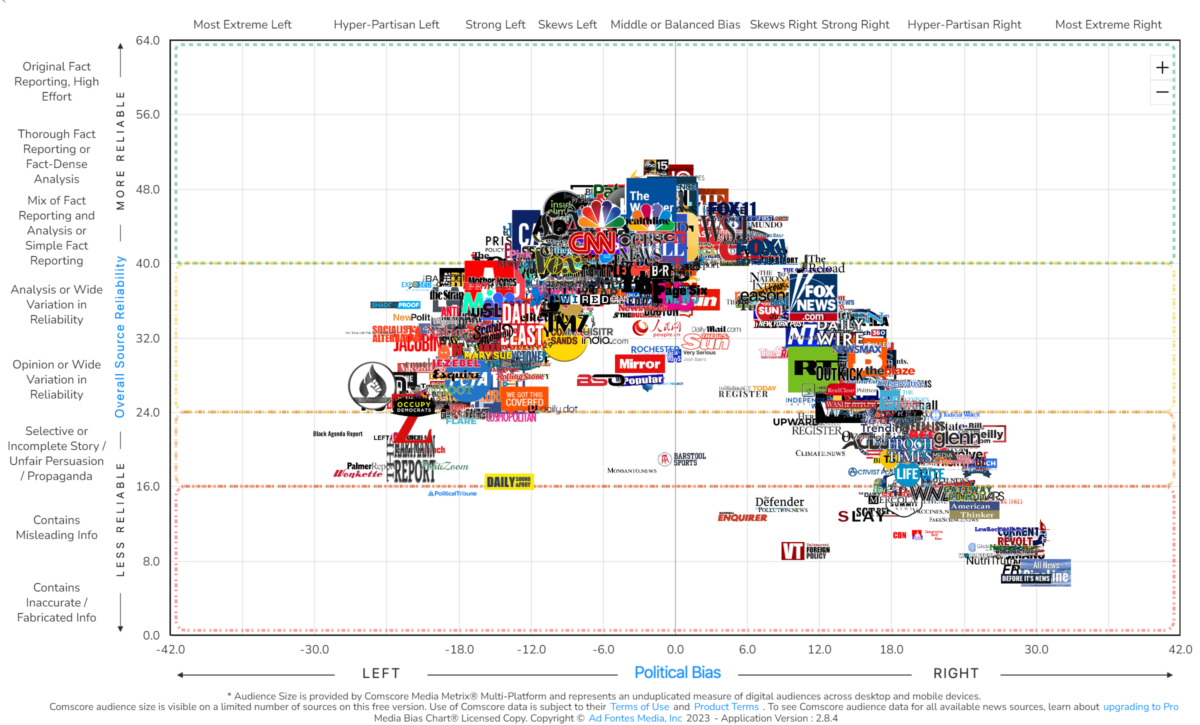Introduction to Unbiased News
In a world where news can often seem like a battleground of opinions, finding unbiased news channels in the USA is like discovering a rare gem. Unbiased news aims to present information fairly and objectively, free from the influence of political or corporate agendas. But what exactly defines unbiased news, and why is it so crucial in today’s media landscape? Let’s dive into these questions and explore some of the major players in the world of unbiased reporting.
What Defines Unbiased News?
https://arizonaupdate.com/ is characterized by its commitment to presenting facts without distortion or favoritism. This means delivering news based on verifiable facts and providing context without injecting personal opinions or selective reporting. A true unbiased news channel strives to balance its coverage, representing all sides of a story fairly.
Why Is Unbiased News Important?
Unbiased news is essential because it allows the public to form their own opinions based on accurate information. In an era of “fake news” and sensationalism, unbiased reporting helps maintain the integrity of journalism and fosters a well-informed society. It combats misinformation and ensures that diverse perspectives are represented, contributing to a more balanced and democratic media landscape.
Major Unbiased News Channels
Finding unbiased news channels can be a game-changer for anyone tired of the polarized media landscape. Here are some notable examples of channels that strive for fairness and objectivity:
NPR (National Public Radio)
Overview of NPR
NPR is a non-profit media organization known for its in-depth reporting and analysis. It operates under the principle of providing fact-based and balanced news. Unlike many commercial news outlets, NPR’s funding model, which includes listener donations and grants, helps it avoid commercial pressures that can skew reporting.
NPR’s Approach to Unbiased Reporting
NPR’s approach to unbiased reporting involves rigorous editorial standards and a commitment to diverse viewpoints. By focusing on in-depth reporting and avoiding sensationalism, NPR maintains a reputation for reliability. The network emphasizes transparency in its sources and strives to present stories with context, ensuring that listeners receive a comprehensive understanding of the issues.
PBS NewsHour
Overview of PBS NewsHour
PBS NewsHour is another strong contender in the realm of unbiased news. As part of the Public Broadcasting Service, it offers comprehensive news coverage with an emphasis on in-depth analysis. PBS NewsHour’s commitment to journalistic integrity is reflected in its detailed reporting and balanced presentation of stories.
How PBS NewsHour Maintains Objectivity
PBS NewsHour maintains objectivity by employing a structured editorial process that includes multiple layers of fact-checking and review. The show’s commitment to neutrality is evident in its balanced presentation of different viewpoints, providing a well-rounded perspective on current events. Its funding model, reliant on public donations and corporate sponsorships without commercial pressures, also supports its unbiased stance.
Reuters
Overview of Reuters
Reuters is a global news organization with a long-standing reputation for impartial reporting. As one of the largest and most trusted news agencies in the world, Reuters provides news coverage that is widely used by media outlets around the globe.
Reuters’ Commitment to Neutral Reporting
Reuters’ commitment to neutral reporting is evident in its editorial policies and practices. The organization adheres to strict guidelines to ensure accuracy and fairness, focusing on providing clear and unbiased information. Reuters’ global network of journalists and correspondents helps maintain a balanced perspective, delivering news that is both accurate and comprehensive.
Challenges in Achieving Unbiased Reporting
Even the most reputable news channels face challenges in maintaining unbiased reporting. Understanding these challenges can provide insight into why achieving true objectivity is difficult.
Media Bias and Its Impact
Media bias can subtly influence reporting, even in organizations committed to objectivity. Bias can manifest through story selection, framing, and language use. Recognizing these biases is crucial for readers who seek to understand the full context of news stories.
Financial Pressures and Their Effects
Financial pressures, such as reliance on advertising revenue, can impact news coverage. Commercial news outlets might prioritize sensational stories that attract more viewers or readers, potentially skewing their reporting. Non-profit and publicly funded news organizations, like NPR and PBS, often have fewer such pressures, which can support more balanced reporting.
How to Evaluate News for Bias
To navigate the complex media landscape, it’s essential to develop skills for evaluating news sources critically.
Fact-Checking Websites
Fact-checking websites are invaluable resources for verifying the accuracy of news stories. Websites like Snopes, FactCheck.org, and PolitiFact can help readers discern fact from fiction and assess the reliability of various news reports.
Cross-Referencing News Sources
Cross-referencing news from multiple sources can provide a more comprehensive view of a story. Comparing how different news outlets report on the same event can help identify biases and ensure a more balanced understanding of the facts.
The Future of Unbiased News in the USA
The future of unbiased news is evolving with technological advancements and changing media consumption habits.
Trends and Innovations
Emerging trends in journalism, such as data-driven reporting and interactive media, offer new ways to present information objectively. Innovations in technology, including artificial intelligence and machine learning, are also being used to enhance fact-checking and reduce bias.
The Role of Technology
Technology plays a significant role in shaping the future of unbiased news. Digital platforms and tools can improve transparency and provide new ways for audiences to engage with and evaluate news content. However, they also present challenges, such as the proliferation of misinformation and the need for robust digital literacy.
Conclusion
Navigating the world of news can be challenging, but finding unbiased news channels is a crucial step towards staying informed. Channels like NPR, PBS NewsHour, and Reuters are commendable for their commitment to impartial reporting. As media evolves, staying aware of the challenges and using tools to evaluate news can help you stay well-informed in an increasingly complex media landscape.

